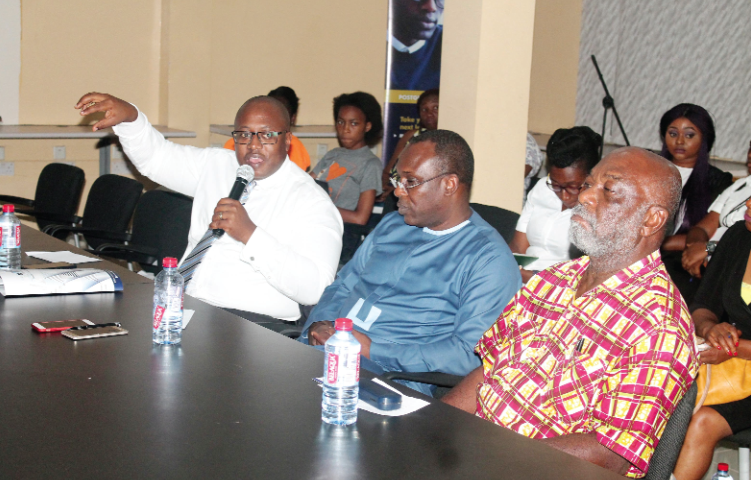
Resource Special Prosecutor to discharge duties creditably — Discussants
Discussants at a forum in Accra have called on the government to resource the Office of the Special Prosecutor (OSP) adequately to make it effective in dealing with corruption cases.
At a students’ forum at the Wisconsin International University College in Accra last Wednesday, the discussants, including a Senior Research Fellow at the Centre for Democratic Dialogue, Ghana (CDD-Ghana), Dr Kojo Pumpuni Asante, and a Policy Analyst of IMANI Ghana, Mr Kofi Bentil, observed that the country had been static in prosecuting corrupt officials in the last 10 years and, therefore, the OSP was a good intervention that could work to expose the rot in the system and punish same.
The OSP, independent of the Executive, will have the mandate to investigate and prosecute cases of alleged corruption under the Public Procurement Act, 2003 (Act 663) and other corruption-related offences implicating public officers, political office holders and their accomplices in the public sector.
According to Dr Asante, cases of national concern, such as the Ghana Youth Employment and Entrepreneurial Development Agency (GYEEDA), the Savannah Accelerated Development Authority (SADA), the National Service Secretariat, Brazil 2014 saga, the 34 judges who were sacked, bus branding, national ambulance and the National Communication Authority-alleged scandals remained uninvestigated, a good place for the new office to begin from.
“We hear of corruption cases all the time, but how many of them get prosecuted? Ghana is marking time and is static when it comes to corruption. We averagely performed 38 per cent for the last 10 years on the Corruption Perception Index and that suggests that there is still a problem in this country,” Dr Asante indicated.
Read also: Libya's 'slave trade' is example of vigilantism - Asiedu-Nketia
Principles
Dr Asante suggested that specific principles be developed to guide the set-up of the office to achieve transparency, security of tenure, performance assurance and accountability to the citizens.
He posited that the position of the Special Prosecutor, for instance, should be advertised publicly in order to make the fight against corruption non-partisan.
Regulations
For his part, Mr Bentil noted that the country lacked systems that ensured proper enforcement of regulation and policies, allowing people to continue “to steal the country’s resources”.
He added that if the bill worked, people, particularly state officials, would think carefully before using state funds.
Roles
To solve and ensure OSP’s flawless implementation, the policy analyst said there was the need to overcome the constitutional hurdles by clearly defining the roles of the Special Prosecutor and the Attorney-General.
Mr Bentil also called for transparency in the appointment of the Special Prosecutor to allow the position occupant the free hand to operate and resist interference by any political bigwig.
